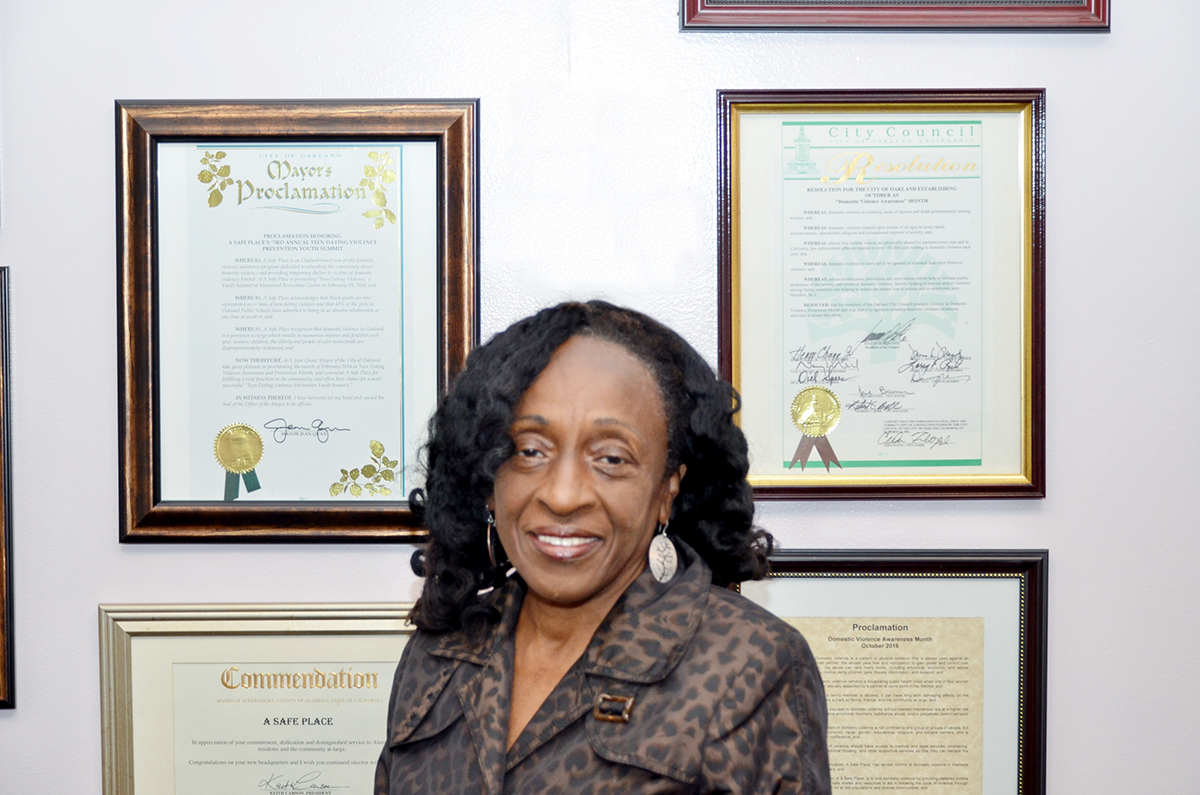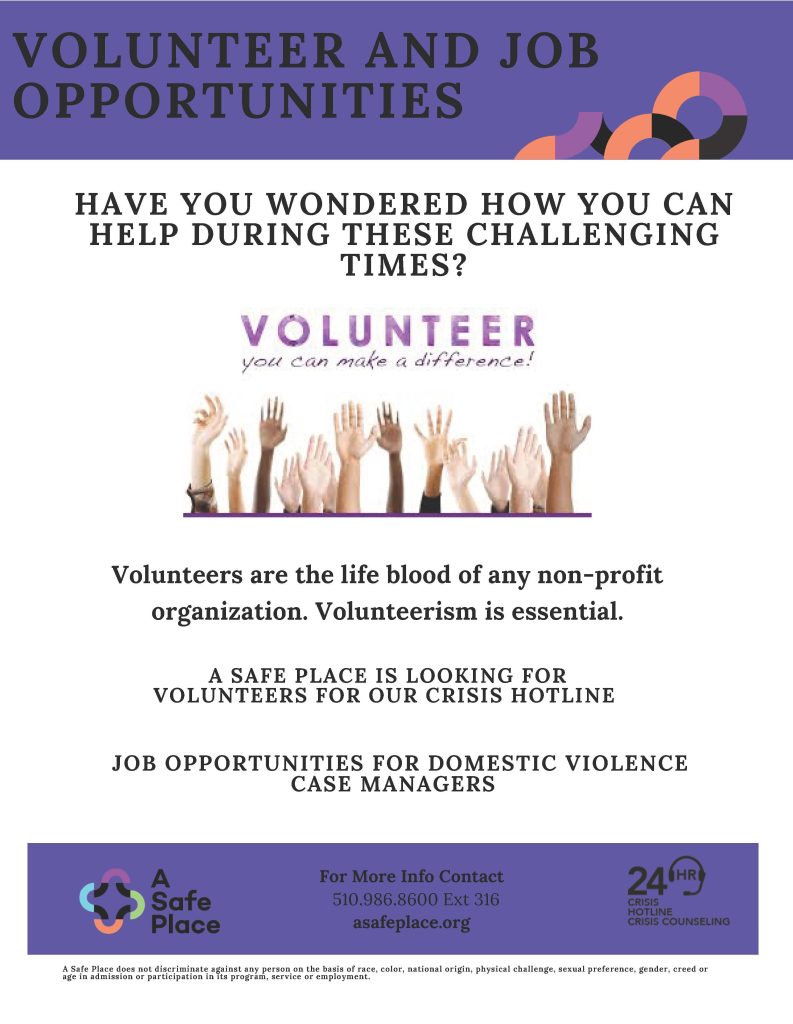Activism
Shelter-in-Place Order for COVID-19 Poses Danger to Domestic Violence Victims

For several months, the most vulnerable have been suffering. COVID-19, in the form of shelter-in-place, has created another level of isolation, not only for adult victims but also for children. Unfortunately, there is evidence that during this imposed isolation domestic violence has been escalating. Most recently, the U.N. described the worldwide increase in domestic violence as a “shadow pandemic” alongside COVID-19.
Reports from women speak to their feelings of uncertainty. “Should they try and leave or stick it out.” Many feel trapped, while others are leaving due to the increased abuse. The consequences are horrific for all women living with a perpetrator. Many women fear the unknown. Trapped in the home during the pandemic, they are afraid to leave since the options to escape that existed before COVID-19 no longer exist. Family and friends are reluctant to welcome another family into their homes due to safety issues created by the virus. Many shelters have limited capacity for the same safety reasons. Some survivors are seeking support via texting or finding other creative means to communicate.
Another problem was the closure of the courts and, even though they are open now, are working at a significantly reduced level. Child custody orders, protective orders and other domestic violence-related matters are not getting the same attention due to restricted court schedules. Arrests for domestic violence are often disputed by survivors, making it difficult for law enforcement to intervene.
Finally, one of the greatest fears among those experiencing domestic violence, and those who are at risk of being abused, is that they might become homeless due to lack of income. In the economic crisis caused by COVID-19, many workers have been furloughed, and this loss of employment can result in families at risk being trapped in an unsafe home. They cannot afford to sustain the rent alone and will stay with the perpetrator since he “helps with the bills.” Women tell stories of perpetrators threatening to “put them out” on the streets since some survivors are facing unemployment.
Power and control are primary issues with perpetrators. Withholding financial and other kinds of support are the primary ways they perpetrate financial abuse. Threats and psychological abuse create a volatile and hostile environment for both the survivor and the children.
Children are living in homes each day with no outlet or escape; they cannot speak out or receive the daily support normally received through school and other extracurricular activities. The mental and psychological effects of this time in confinement for children will be long term.
Children who witness domestic violence are often traumatized. Due to the rising levels of tension and anger in abusers caused by the stresses of shelter-in-place and unemployment, children may also be physically abused. The long-term effects will become manifest as children return to school. Protective factors must be considered in supporting children who are living in homes where domestic violence is occurring.
Minority communities are often most affected during disasters, often forced to compromise their health to maintain employment and it is even worse for survivors of domestic violence. These life stressors, along with constant mental and physical abuse, will create a need for mental health support in reducing the trauma experienced during the pandemic.
Shelter-in-place is critical and is one of the most important methods to remain safe amid the COVID-19. However, it has had a tremendous negative impact on survivors of domestic violence and their children.
Carolyn Russell, executive director of A Safe Place Domestic Violence Assistance Program, holds a master’s degree in social work and a master’s degree in forensic psychology.

Activism
Oakland Post: Week of June 18 – 24, 2025
The printed Weekly Edition of the Oakland Post: Week of June 18 – 24, 2025

To enlarge your view of this issue, use the slider, magnifying glass icon or full page icon in the lower right corner of the browser window.
Activism
Juneteenth: Celebrating Our History, Honoring Our Shared Spaces
It’s been empowering to watch Juneteenth blossom into a widely celebrated holiday, filled with vibrant outdoor events like cookouts, festivals, parades, and more. It’s inspiring to see the community embrace our history—showing up in droves to celebrate freedom, a freedom delayed for some enslaved Americans more than two years after the Emancipation Proclamation was signed.

By Wayne Wilson, Public Affairs Campaign Manager, Caltrans
Juneteenth marks an important moment in our shared history—a time to reflect on the legacy of our ancestors who, even in the face of injustice, chose freedom, unity, and community over fear, anger, and hopelessness. We honor their resilience and the paths they paved so future generations can continue to walk with pride.
It’s been empowering to watch Juneteenth blossom into a widely celebrated holiday, filled with vibrant outdoor events like cookouts, festivals, parades, and more. It’s inspiring to see the community embrace our history—showing up in droves to celebrate freedom, a freedom delayed for some enslaved Americans more than two years after the Emancipation Proclamation was signed.
As we head into the weekend full of festivities and summer celebrations, I want to offer a friendly reminder about who is not invited to the cookout: litter.
At Clean California, we believe the places where we gather—parks, parade routes, street corners, and church lots—should reflect the pride and beauty of the people who fill them. Our mission is to restore and beautify public spaces, transforming areas impacted by trash and neglect into spaces that reflect the strength and spirit of the communities who use them.
Too often, after the music fades and the grills cool, our public spaces are left littered with trash. Just as our ancestors took pride in their communities, we honor their legacy when we clean up after ourselves, teach our children to do the same, and care for our shared spaces.
Small acts can inspire big change. Since 2021, Clean California and its partners have collected and removed over 2.9 million cubic yards of litter. We did this by partnering with local nonprofits and community organizations to organize grassroots cleanup events and beautification projects across California.
Now, we invite all California communities to continue the incredible momentum and take the pledge toward building a cleaner community through our Clean California Community Designation Program. This recognizes cities and neighborhoods committed to long-term cleanliness and civic pride.
This Juneteenth, let’s not only celebrate our history—but also contribute to its legacy. By picking up after ourselves and by leaving no litter behind after celebrations, we have an opportunity to honor our past and shape a cleaner, safer, more vibrant future.
Visit CleanCA.com to learn more about Clean California.
Activism
OPINION: California’s Legislature Has the Wrong Prescription for the Affordability Crisis — Gov. Newsom’s Plan Hits the Mark
Last month, Gov. Newsom included measures in his budget that would encourage greater transparency, accountability, and affordability across the prescription drug supply chain. His plan would deliver real relief to struggling Californians. It would also help expose the hidden markups and practices by big drug companies that push the prices of prescription drugs higher and higher. The legislature should follow the Governor’s lead and embrace sensible, fair regulations that will not raise the cost of medications.

By Rev. Dr. Lawrence E. VanHook
As a pastor and East Bay resident, I see firsthand how my community struggles with the rising cost of everyday living. A fellow pastor in Oakland recently told me he cuts his pills in half to make them last longer because of the crushing costs of drugs.
Meanwhile, community members are contending with skyrocketing grocery prices and a lack of affordable healthcare options, while businesses are being forced to close their doors.
Our community is hurting. Things have to change.
The most pressing issue that demands our leaders’ attention is rising healthcare costs, and particularly the rising cost of medications. Annual prescription drug costs in California have spiked by nearly 50% since 2018, from $9.1 billion to $13.6 billion.
Last month, Gov. Newsom included measures in his budget that would encourage greater transparency, accountability, and affordability across the prescription drug supply chain. His plan would deliver real relief to struggling Californians. It would also help expose the hidden markups and practices by big drug companies that push the prices of prescription drugs higher and higher. The legislature should follow the Governor’s lead and embrace sensible, fair regulations that will not raise the cost of medications.
Some lawmakers, however, have advanced legislation that would drive up healthcare costs and set communities like mine back further.
I’m particularly concerned with Senate Bill (SB) 41, sponsored by Sen. Scott Wiener (D-San Francisco), a carbon copy of a 2024 bill that I strongly opposed and Gov. Newsom rightly vetoed. This bill would impose significant healthcare costs on patients, small businesses, and working families, while allowing big drug companies to increase their profits.
SB 41 would impose a new $10.05 pharmacy fee for every prescription filled in California. This new fee, which would apply to millions of Californians, is roughly five times higher than the current average of $2.
For example, a Bay Area family with five monthly prescriptions would be forced to shoulder about $500 more in annual health costs. If a small business covers 25 employees, each with four prescription fills per month (the national average), that would add nearly $10,000 per year in health care costs.
This bill would also restrict how health plan sponsors — like employers, unions, state plans, Medicare, and Medicaid — partner with pharmacy benefit managers (PBMs) to negotiate against big drug companies and deliver the lowest possible costs for employees and members. By mandating a flat fee for pharmacy benefit services, this misguided legislation would undercut your health plan’s ability to drive down costs while handing more profits to pharmaceutical manufacturers.
This bill would also endanger patients by eliminating safety requirements for pharmacies that dispense complex and costly specialty medications. Additionally, it would restrict home delivery for prescriptions, a convenient and affordable service that many families rely on.
Instead of repeating the same tired plan laid out in the big pharma-backed playbook, lawmakers should embrace Newsom’s transparency-first approach and prioritize our communities.
Let’s urge our state legislators to reject policies like SB 41 that would make a difficult situation even worse for communities like ours.
About the Author
Rev. Dr. VanHook is the founder and pastor of The Community Church in Oakland and the founder of The Charis House, a re-entry facility for men recovering from alcohol and drug abuse.
-

 Activism4 weeks ago
Activism4 weeks agoOakland Post: Week of May 28 – June 30, 2025
-

 #NNPA BlackPress3 weeks ago
#NNPA BlackPress3 weeks agoIt Just Got Even Better 2026 Toyota RAV4 AWD GR Sport Walkaround
-

 Activism4 weeks ago
Activism4 weeks agoRemembering George Floyd
-

 Activism2 weeks ago
Activism2 weeks agoOak Temple Hill Hosts Interfaith Leaders from Across the Bay Area
-

 Alameda County2 weeks ago
Alameda County2 weeks agoCouncil Approves Budget to Invest in Core City Services, Save Fire Stations, Invest in Economic Development
-

 Activism2 weeks ago
Activism2 weeks agoOakland Post: Week of June 11 – 17, 2025
-

 Activism2 weeks ago
Activism2 weeks ago“We Are Better Than This”: Black Caucus Denounces L.A. County ICE Raids as Multiple Protests Erupt
-

 Activism2 weeks ago
Activism2 weeks agoLA to the Bay: Thousands Protest in Mission District Against Immigration Raids, Travel Bans





















































